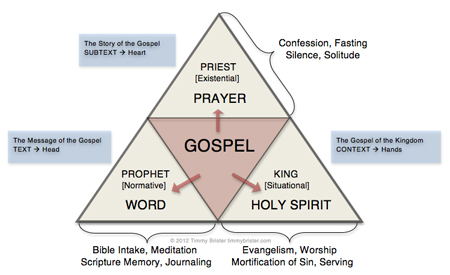Do you find it difficult to share about Jesus with others?
You are not alone.
Jonathan Dodson writes in the introductory article for a series, “5 Reasons It’s Difficult to Share Our Faith” on Gospel-Centered Discipleship:
Very often we find it difficult to share our faith. Whether we’re in the workplace, neighborhood, or a social setting, talking about the person and work of Jesus doesn’t come naturally. There are some good reasons for this.
Dodson begins the series with the first one:
1. What if I’m Viewed as Preachy?
Preachy Christians often turn people off not onto faith in Christ. Think of Angela from The Office, the street preacher, or maybe the free speech fundamentalist yellers on campus in college. I remember watching them. They stood on a box to yell. Leading out with hell, fire, and damnation not grace, forgiveness, and salvation.These Christians all share something in common—self-righteousness. If we’re honest, we all have a bit of this in us, but with these figures it’s amplified. We hesitate to talk about Jesus because we don’t want to be associated with them. We’re concerned it would turn others off. But preachy self-righteousness isn’t just a turn off; it’s the opposite of the gospel. This brings into focus our first, principal concern:
We should avoid preachy self-righteousness because it communicates something opposite to the gospel.
 Self-righteousness is rooted in pride and greed, no matter how religious or sincere we are, and thus when we are self-righteous will won’t be generous with the words of Jesus. Instead of representing Him, we will default to representing ourselves.
Self-righteousness is rooted in pride and greed, no matter how religious or sincere we are, and thus when we are self-righteous will won’t be generous with the words of Jesus. Instead of representing Him, we will default to representing ourselves.
Dodson continues by exploring “How Do We Change the ‘Preachy’ Perception?”
Now, there’s also a critical response to this concern. While it’s true that we should oppose preachy self-righteousness (because it obscures the gospel of grace), it is also true that the gospel offends our own self-righteous sensibilities. The gospel reminds us that we don’t have what it takes before a holy God, that Christ alone has what it takes, and that he’s died and risen to give it to us.
The gospel is offensive; it lifts up a mirror and shows us who we really are, but it’s also redemptive; it lifts up Christ to show us who we can become.
How will this incorrect view of Christianity be corrected? Actions might remedy a perception of personal self-righteousness, but they can’t correct a religious view of the gospel. Only words can clarify the meaning of the gospel. Yet, there remains more difficulties in sharing our faith. In the next article, we will consider the concern that we first have a relationship before sharing the gospel with other
- See the whole article on moving from preachiness to embodying the Gospel and speaking confidently, humbly, and honestly.












